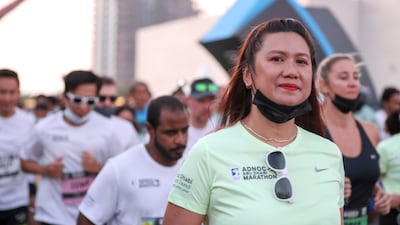Over the past couple of years, as part of Covid-19 related restrictions, we’ve got used to living in "bubbles". The size of the bubbles waxes and wanes but across the world, in the office, at home, in school, in so much of our daily lives, we avoid contact with others. All of us look forward, I suppose, to the day when restrictions become irrelevant and "bubbles" simply burst or float away into our memories.
I was reminded the other day, however, that there is another kind of bubble in which many of us choose to live, of our own free will – one which also has a direct impact on our life in the Emirates.
This country is enormously diverse in its population. There are people of nearly 200 nationalities who live and work here. Categorised by the passports they carry, some of those nationalities can be counted in their millions, others in no more than a few hundreds, if that, with everything else in between. Each can represent a bubble in which people live, even if, for larger countries and larger communities, more tightly defined "sub-bubbles" exist.
For many people, social engagement with others, apart from those one meets at work or school, can be defined as interacting with people from the same national or ethnic bubble or sub-bubble. That can be easy, not just in terms of language but because of cultural affinities. Yet choosing to restrict oneself in such a way can result in missing out on the opportunities to experience the full extent of the multi-cultural diversity that the UAE has to offer and to learn and benefit from it.
I have been fortunate over the years to have had and to have been able to maintain a social network across cultural, national and ethnic boundaries. It is fairly diverse network, despite my lack of language skills. One companion on an outing last month not only came from a different continent, but was many, many decades younger than I.
The other day I was chatting with a friend living in Abu Dhabi about her experiences here. Outside work, she said, she had initially chosen to pursue a sport that is effectively limited to her own country and to its expatriates overseas. And so, much of her social life involved engagement with people of her own nationality.
Then she decided to take up a different sport, the triathlon, as it happens, and met up with a whole new bunch of people, working in different fields, coming from different countries, and with markedly varied backgrounds. This athletic community travels around a bit too, so, a couple of weekends ago, my friend gathered with many others in Ras Al Khaimah, giving her the opportunity to see another part of the country. Taking up that new sport, she says, has helped her to get to know a wider variety of people, as well as to learn more about the country.

In my own favoured leisure pursuit, birdwatching, I have come across British, Irish, Filipinos, Lebanese, Indians, Egyptians, Emiratis and others, all brought together by a shared interest in observing the country’s birdlife. As birds can be found anywhere – in mountain wadis, in the cities, in the deep deserts and on offshore islands – travelling to look for them involves criss-crossing the whole of the Emirates. From that, I have learnt an enormous amount, in particular the fact that there is much more to this country than cities, skyscrapers and malls.
I understand why it is often easier to spend time with people who share a similar background in terms of nationality and upbringing. That is a perfectly natural approach. There is, however, a lot to be gained, though, from stepping out of the personal comfort zone provided by mixing only with one’s own nationality. Reaching out to people from different communities, finding a shared interest can open up a whole new set of insights, whether it is triathlons or any other form of sport, or birdwatching, or fishing or even more sedentary forms of activity.
From the social engagements that follow, it is possible to learn to understand people better and to break through the invisible barriers that contribute to divisions and misunderstandings. Doing that does not mean that one has to shrug off the identities that each of us have developed and that link us to our communities and countries. Those identities provide us with solid foundations. From there we can contribute to the diversity that characterises this nation.
I hope that, as the artificial bubbles imposed on us by Covid-19 restrictions pass away, more of us, of all nationalities, will reach out to learn what lies beyond our own immediate community. That will be of benefit to all.


